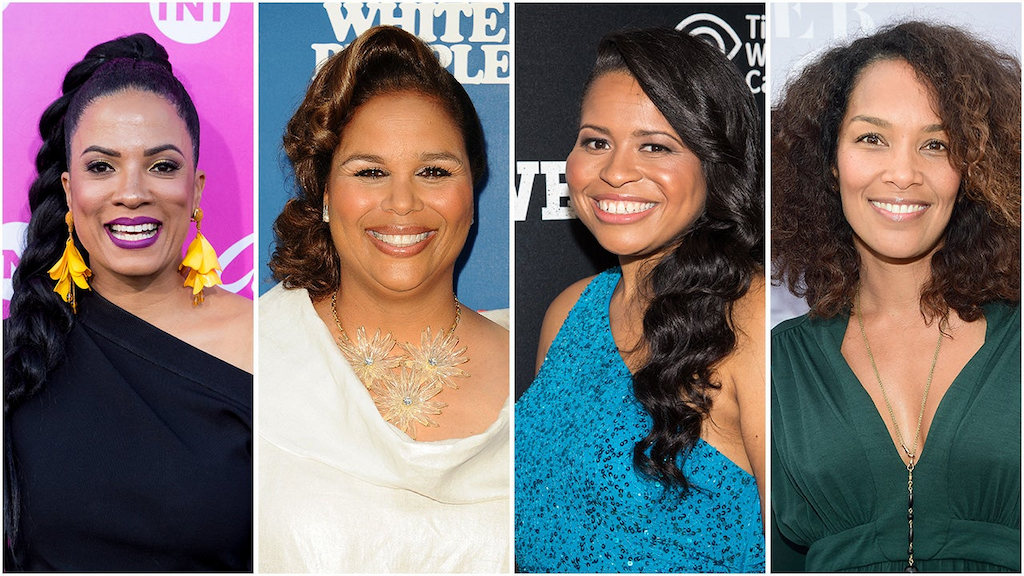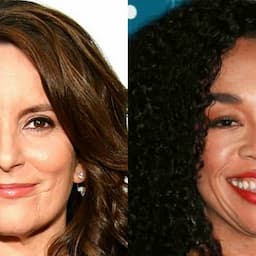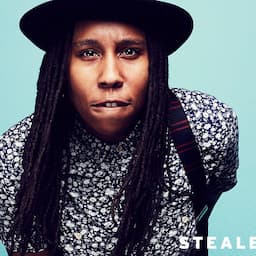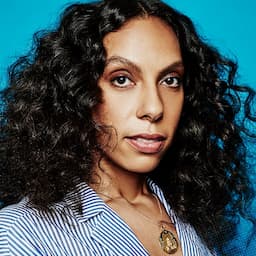Courtney Kemp, Janine Sherman Barrois, Mara Brock Akil and Yvette Lee Bowser discuss diversity onscreen and behind the scenes and share stories about standing up against network executives over representation and story lines.
During the 2017-18 television season, 15 scripted shows were created, run or executive produced by African American women, including Ava DuVernay (Queen Sugar), Courtney Kemp (Power), Demetria Harris-Lawrence (Unsolved: The Murders of Tupac and the Notorious B.I.G.), Felicia D. Henderson (The Punisher, The Quad), Issa Rae (Insecure), Janine Sherman Barrois (Claws), Karin Gist (Star), Monica Owusu-Breen (Midnight, Texas) and Yvette Lee Bowser (Dear White People). While certainly not the end of Hollywood’s systemic issue of gender and racial disparity, their collective presence represents a new golden age of scripted black TV, diversifying not only what’s seen on screen but also the racial and gender makeup behind the scenes. And it’s just the tip of the iceberg of what’s to come.
Following a 2017 Emmy win for Master of None, Lena Waithe launched The Chi on Showtime and recently landed a pilot order for Twenties at TBS. Last year, Shonda Rhimes brokered a Netflix deal reportedly worth $100 million, taking her away from her longtime home at ABC, where Shondaland was responsible for the network’s popular TGIT lineup. (While this year marked the end of Scandal after seven seasons, Grey’s Anatomy has been renewed for a 15th.) Following the June premiere of Love Is__ on OWN, Mara Brock Akil’s Being Mary Jane is slated to close out a four-season run with a TV movie on BET sometime in 2018. Meanwhile, The CW’s Black Lightning, which she executive produces alongside husband and creator Salim Akil, has been renewed for a second season. Despite the cancellation of Underground, Misha Green is set to reunite with actress Jurnee Smollett-Bell on the HBO series Lovecraft Country. Girls Trip screenwriter Tracy Oliver is leading the First Wives Club series adaptation at Paramount Network and Jessica Jones writer Aïda Mashaka Croal is set to co-showrun FX’s adaptation of Y: The Last Man with Melina Matsoukas co-executive producing.
“Now is a great time for black showrunners and creators because there's definitely more of an agenda to have our voices be heard in new, fresh ways,” says Bowser, who prior to serving as showrunner on Netflix’s Dear White People was one of the first African American women to develop a primetime show, 1993’s Living Single starring Queen Latifah. Back then, or even as recently as 10 years ago, “I don’t think this moment existed,” she says.
It’s a sentiment shared by other female showrunners and executive producers -- including Akil, Barrois and Kemp -- ET spoke with about working in the current era of television, which has been dubbed “peak TV” for the nearly 500 scripted programs that were produced in 2017. “We are seeing more African Americans and people of color given the opportunity to run shows,” says Barrois, the showrunner for TNT’s Claws, one of the highest-rated new cable dramas of 2017. Kemp says that once the industry started to see shows featuring people of color could work, “they found writers that could write shows with people of color on them.”
In the ‘90s, when there was a boom in black shows like Bowser’s Living Single, as well as Family Matters, Fresh Prince of Bel-Air, Martin, Moesha and Sister, Sister, they largely weren’t run by people of color. “Only a few of us were black,” Bowser recalls. It’s an issue that was slow to change despite trailblazers like Akil, Bowser and, later, Rhimes, who have all broken down barriers. While networks were telling more stories about people of color, those shows were still run by white people even as recently as Starz’s Survivor’s Remorse created by Mike O’Malley.
By contrast, Rae is now starring on a series she also co-created, becoming the second black woman behind Wanda Sykes to do so. On Claws, Barrois has made sure there’s a diverse writers’ room, which she credits for bringing different experiences to the show. “It’s refreshing to see voices of all different ages and races and backgrounds coming together to tell a story that’s inclusive,” she says.
It’s that inclusive and authentic storytelling, which both Akil and Bowser agree is essential, that has added to the critical and ratings success of shows like Claws and Dear White People. On the latter, Bowser says “telling our truth in the rawest way” is the only way to ensure people can relate. “With Dear White People in particular, it’s a satire and it’s slightly exaggerated and it’s supposed to poke fun at the powerful and make us look at ourselves. The core of the show is about identity, and that’s what we are all looking for. How do we fit in? How does life make sense?”
The reason Being Mary Jane resonated so much with viewers, Akil says, is because it was exploring a truth that everyone, especially women, could relate to. “I was watching women and observing myself. I’m realizing one of my core themes in that particular series was that women are liars. It’s a layered piece, and if you look at the women, they were trying to break out of that and wanting to be honest about what they were saying and what they were doing. It wasn’t the same stuff that was being said to them in the medium. People respond to honesty and truth. Whether or not they like it, they will recognize it.”
“Television has evolved to a place where the audience is interested and intrigued by those things that make them uncomfortable because they take something new away from it,” Bowser adds. “I think that’s part of why we’re having the moment we’re having is because the audience is demanding it.”
While they largely have been lucky enough to tell the stories they are passionate about, it hasn’t always been easy to get some concepts past network executives. “Right now, in this black renaissance, we can be unapologetically black, allowing us to get to the minutiae of what it means to be black, to be black and female,” Bowser says of being able to have scenes where a black female character, like Janelle on Dear White People, goes to bed in a scarf wrapped around her braids. “And not just seeing these things, but really commenting and owning them in a way that we weren’t able to in the past. I mean, you’d get notes from executives about those kinds of things.”
When she was developing Living Single, for example, executives didn’t like the character of Maxine -- a brassy lawyer and originally the fourth roommate to Khadijah (Latifah), Synclaire (Kim Coles) and Regine (Kim Fields), played by Erika Alexander -- and wanted to cut her from the ensemble. “I said to lose her would be to lose a huge part of me and the show,” Bowser says. Ultimately, they reached a compromise to move the character into an apartment across the street. “I got more comedy from the fact that she was always there even though she didn’t live there. It turned out to be a great thing that she didn’t end up on the cutting-room floor but ended up being a huge part of that show, which was always the intention.” When it comes to Dear White People, however, she says there have been compromises but “there’s nothing that’s on the cutting-room floor. There’s nothing like what happened with a show where they decided they weren’t going to air all the episodes.” (Earlier this year, ABC shelved an episode of black-ish that touched on NFL players kneeling during the national anthem after creative differences between the network and creator Kenya Barris could not be resolved.)
For Akil, who created and executive produced the 2000 UPN series Girlfriends starring Tracee Ellis Ross and its spinoff The Game, there were small fights behind the scenes, like to keep Ross’ naturally curly hair or ensure that female characters would talk openly about their sexuality. “Now, I am meeting a lot of millennial women who grew up on the show and are wearing their hair natural and talking about, ‘I carry condoms.’ That fills me with great joy,” she says. But perhaps her biggest argument came more recently, at the end of Being Mary Jane season three, when BET did not want a character to be pulled over by the cops, believing that police violence against black people was over. “This, maybe, was right before Sandra Bland and post-Mike Brown. So I said, ‘No. I want to bring the issue to light. It’s a conversation that our women are dying and being victimized and we need to do this,’” recalls Akil, who believes her role as showrunner is to communicate a story’s relevance and have that conversation with executives.
In Kemp’s case, she was told by a network that they “already had a black show,” but that didn’t stop her from landing her show somewhere -- Power is now in its fifth season at Starz -- “It just wasn’t that one,” she says. She admits, though, that there were notes about Ghost (played by Omari Hardwick) early in the development of Power that altered the overall concept of the series. “Ghost was an alcoholic in recovery and actively working a 12-step program. I really wanted to tell a story about a person that is in recovery and yet is selling drugs.” Concerned that audiences wouldn’t find it relatable, Starz asked that she remove that element, “which was a huge blow to how I wanted the spirituality of Power to work. I still got to represent the kind of spirituality that I wanted to represent, but not in the way that I wanted.”
But Kemp has stood her ground when it comes to casting. “For me, there’s always a conversation about the different kinds of people in the diaspora. They don’t come in one shade or one kind. People speak Spanish all over the world. So for things like that, I’m fighting for Puerto Rican actors to play Puerto Rican characters.”
Looking ahead to Rhimes’ massive Netflix deal and what it may mean for other women in the industry, Bowser hopes it will make way for “new voices,” while Barrois says, “She helped diminish the wall. Now a person of color can make billions of dollars for you.”
Ultimately, progress is “one brick at a time; one powerful story at a time,” says Bowser, who, like most of the women, takes responsibility for not only taking advantage of the opportunities they've been given, but also creating opportunities for the next generation of black women coming up the ranks and encouraging them not to be satisfied with the status quo. “There are those of us on the inside that are working hard to mentor and train the next generation so there can be more of us that are prepared, qualified, certified and ready to do this,” she adds.
When speaking to ET in December, Waithe emphasized she wanted to use her recent success to help “ensure that more voices are heard, that more people have opportunities, and help ensure their voices are not diluted and that they are coming through the right filters.” She has since created Sight Unseen Pictures to champion new voices with the goal of creating new film and TV projects.
“There is a new generation that are emerging in the business that are saying enough is enough, we need to let every single person have the opportunity to create, to run, to direct and to tell stories,” says Barrois, who is a graduate of the Writers’ Guild of America Showrunners Training Program, where Bowser was one of her mentors, later giving Barrois her first writing job. “My career is a testament to her reaching back and helping me get in.” Barrois has since been able to turn to Bowser for help through behind-the-scenes politics or other problems she’s encountered. Now, she goes back to the program to share her stories (“There’s a code of silence,” she says) and to try to help the young people coming up after her.
While all these women represent a growing force in Hollywood, Kemp cautions that it’s not quite a revolution. “We see Ava and Shonda and Mara and Janine and we’re like, ‘It’s great! It’s changing!’ There’s way more than it was, but it’s not pervasive if I can still count all of those people.”
To Kemp’s point, Barrois adds, “There was a time we didn’t have a chance to run shows or multiple shows. Is it possible to have an African American woman run the show? Sure it is. Is it possible to have an Asian woman run the show? Sure it is. The more we get people in the higher ranks that have inclusive worlds, the better it will be.”
RELATED CONTENT:



